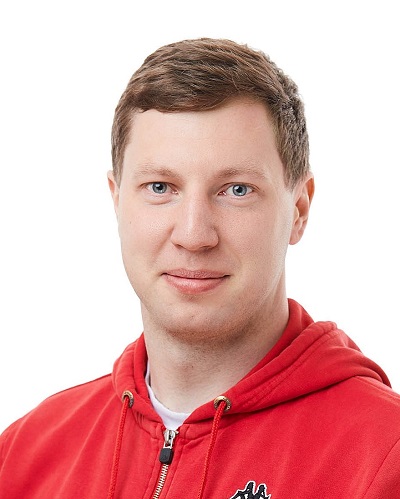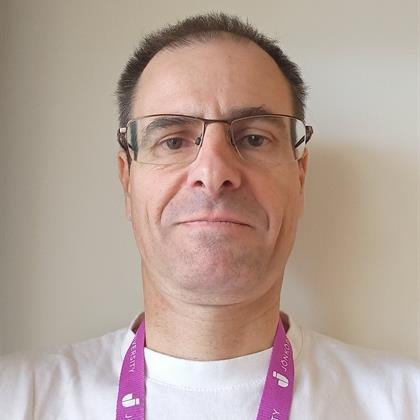Study Guide
This study guide contains information about the implementation of the course. If you ever have any question about something in the course, look for the answer in this study guide or one of the other pages it refers to. If you can't find the answer to your question, email the course coordinator.
- Course name
- Android Development
- Ladok code
- TAGK19
- Credits
- 7.5
- Year
- 2023
- Course coordinator
- Peter Larsson-Green
- Examiner
- Jérôme Landré
- Canvas Room
- Android Development
Introduction
Smartphones and tablets have a huge potential to facilitate for us humans. Often, they can not only replace old none-digital products we have, but also provide us with an even better solution. As an example, when you play a song on an instrument you need to see which notes you should play, which traditionally have been printed on papers. How easy is it to turn to the next side as you play and hold an instrument in your hands? And consequently, the notes are usually quite small to fit as many as possible on the same paper, making them hard to read from a distance.
Imagine the notes instead are shown on a tablet, which just displays the notes you need to play at the moment, and that automatically switches to the notes after that as you play them. Furthermore, it is also possible to record what you play on the instrument, and then re-play it to hear what you need to practice a bit more on. Then you can compare a recording today with a recording you did three weeks ago to see how much you have improved. Used correctly, the potential benefits of these devices are huge!
In this course you will learn how to create applications running smartphones and tablets running Android. Focus will be on learning the fundamental application components all Android applications consists of, but you will also be given the opportunity to dig deeper into specific areas, such as:
- Using Bluetooth to connect to other devices.
- Using Beacons to detect when the device is close to something and react accordingly.
- Using the Internet (e.g. Firestore) to synchronize data between devices.
At course start you are expected to possess knowledge corresponding to the pre-requisite courses shown in below.
Teachers
Peter Larsson-Green

Course coordinator, lecturer, lab assistant. Has studied and followed the development of the web since 2004 and received his Master of Science in Computer Science at Linköping University in 2014. He has been working as programming teacher (part time) since 2010 at both Linköping University and Jönköping University.
- Email: Peter.Larsson-Green@ju.se
- Phone: 036 - 10 17 35
- Website
Martin Lindh
Jérôme Landré
Intended Learning Outcomes
The intended learning outcomes of the course are found in the course syllabus in force. Below is a table showing how the examination tests cover the intended learning outcomes and which teaching activity helping you learn which intended learning outcome.
| Intended Learning Outcome | Examined Elements | Learning Activities |
|---|---|---|
| Display an understanding for the consequences of the Android technical and economical ecosystems | Project work | Recorded Lectures Tutorials Lab Sessions |
| Display an understanding for human interface guidelines for mobile devices | Project work | Lecture Lab Sessions |
| Display an ability to use the Android SDK and toolchain to develop high quality Android apps | Project work | Recorded Lectures Tutorials Lab Sessions |
| Display an ability to use sensor systems using Android APIs | Project work | Recorded Lectures Tutorials Lab Sessions |
| Display an ability to use common APIs for Android | Project work Laboratory work | Recorded Lectures Tutorials Lab Sessions |
| Display an ability to employ established methods to develop user interfaces for small screens with touch input | Project work | Lectures Lab Sessions |
| Display an ability to evaluate the Android system architecture | Project work | Recorded Lectures Tutorials Lab Sessions |
Learning Activities
Here are short introduction to the learning activities offered in the course.
Recorded Lectures
There exists some pre-recorded lectures that will help you learn the basics of Android Development.
Tutorials
At the lectures on campus, the teacher won't have power point presentations. Instead, these sessions are called "tutorials" to reflect that the teacher instead will show you how to implement different things in an Android app.
Lectures
Martin Lindh will give you one lecture on Campus focused on designing graphical user interfaces and creating mockup applications for smartphones.
Lab Sessions
Each week you may attend a 4 hours lab session. At the lab session you may ask the teacher there for help with your laboratory work and your project work. When you have completed your laboratory work you should also present your solution to a teacher at a lab sessions.
There are 3 different lab sessions each week, but you may only come to one of them. To distribute you, join one of the Lab Session Groups on Canvas. First come, first served. Feel free to attend the other lab sessions as well, but students that have signed up for a specific lab session should of course be prioritized by the teacher.
Examination Tests
The course contains two examination tests.
1. Laboratory Work
More information about the Laboratory Work can be found on the page Laboratory Work.
2. Project Work
More information about the Project Work can be found on the page Project Work.
Re-examination
below shows the study and exam periods during a year. The small yellow circle sectors shows when the (re-)examinations are offered in this course (at the re-exam periods in June and August).
If you need to know a precise date and time for the re-examination in advance, email the course coordinator at peter.larsson-green@ju.se. An announcement on Canvas with more information will be posted soon before the re-examination periods for this course.
The project work will only be graded 3/U (U=fail) at re-examination.
If you haven't passed some examination tests after the three examination opportunities (ordinary + 2 re-exam) you need to re-take those tests the next time the course run. Note that the instructions for those tests might have changed the next time the course run, and that you should take them according to the new instructions.
Final grade
To receive a final grade in the course you need to pass all examination tests. The final grade will be based on the grade for the Project Work.
Course Literature and Other Teaching Aids
The following CommonsWare’s Books:
- Elements of Kotlin
- Elements of Kotlin Coroutines
- Elements of Android Room
- Elements of Android Jetpack
- Exploring Android
- Elements of Android R
Time Plan
A time plan is available on the page Time Plan.

